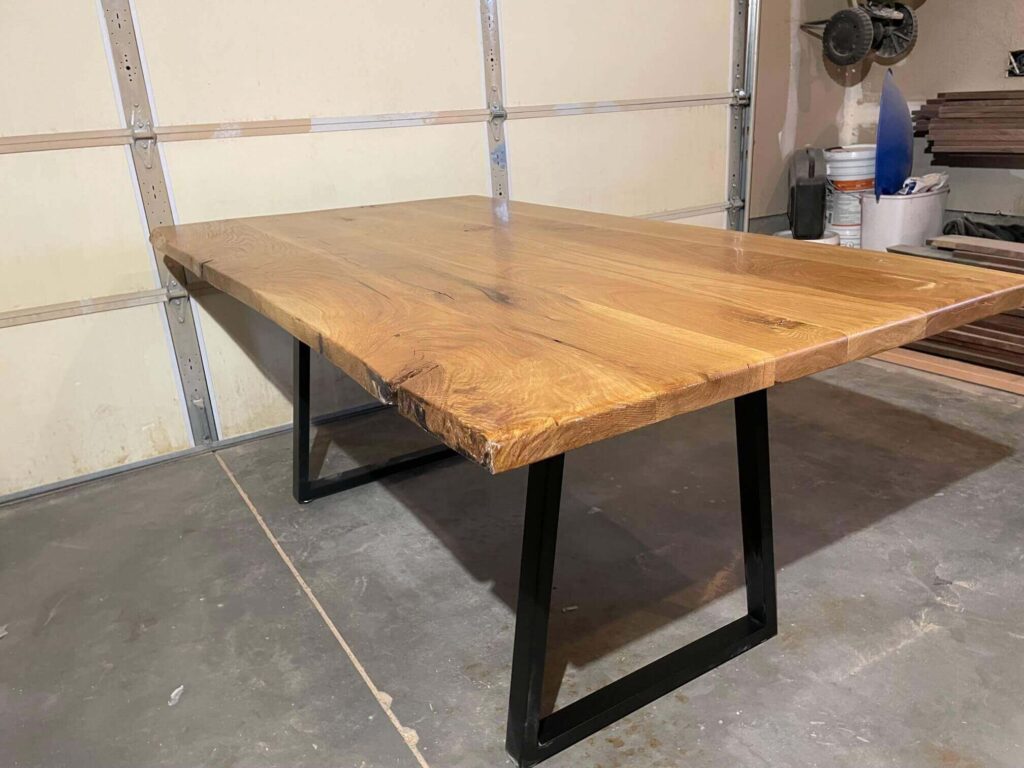Wooden tables are often considered one of the most expensive types of custom furniture available. While many factors contribute to the cost of wooden tables, several key factors are particularly influential in driving up the price.
- Type of Wood
One of the most significant factors that contribute to the cost of wooden tables is the type of wood used to make them. Some types of wood are more expensive than others due to their rarity, hardness, and durability.
For example, hardwoods like mahogany, cherry, and oak are often used to make high-end furniture and are more expensive than softer woods like pine or spruce. Exotic woods like rosewood or teak can be even more expensive due to their unique appearance and limited availability.
- Quality of Wood
In addition to the type of wood, the quality of the wood used in the construction of wooden tables can also significantly impact their price. High-quality wood is often selected for its durability, stability, and unique grain patterns, making it more expensive than lower-quality wood.
When selecting wood for furniture, the furniture maker has to carefully inspect each piece for any defects, such as knots or cracks, and choose only the best pieces for use in their projects. This careful selection process ensures that the final product is of the highest quality and contributes to its higher cost.
- Craftsmanship
The furniture maker’s level of craftsmanship that goes into the creation of wooden tables is also a major factor in their cost. Skilled artisans spend hours carefully crafting each piece of the table, from selecting the wood to finishing the final product.
Craftsmanship involves a great deal of attention to detail and expertise in working with wood. The more skilled the craftsman, the more expensive the final product is likely to be. Additionally, skilled craftsmen often command higher wages, which can also contribute to the higher cost of wooden tables.
- Production Process
The production process for wooden tables is often time-consuming and labor-intensive, further contributing to their cost. Our process typically involves several stages, including milling, sanding, shaping, and finishing, each of which requires a significant amount of time and effort.
In addition to the labor required, the production process also involves specialized tools and equipment, which can be expensive to purchase and maintain. The cost of these tools and equipment is often reflected in the final price of the wooden table.
- Design
The design of the wooden table can also have a significant impact on its cost. More intricate and complex designs require additional time and effort to create, which can drive up the price of the final product.
Additionally, custom designs or unique features, such as inlaid patterns or carved details, can further increase the cost of the table. These designs often require additional skill and expertise to create, which can contribute to the higher cost.
- Environmental Concerns
Another factor that contributes to the higher cost of wooden tables is growing concerns about the environment. Many consumers are increasingly aware of the impact that furniture production can have on the environment and are willing to pay more for furniture that is sustainably sourced and environmentally friendly.
To meet this demand, we make use of certified sustainable woods, which are typically more expensive than traditional woods. Additionally, the production process may be modified to reduce waste and minimize the environmental impact, which can further increase the cost.
In conclusion, wooden tables are expensive due to several factors, including the type and quality of wood used, the level of craftsmanship, the production process, the design, and growing environmental concerns. While the high cost may be prohibitive for some, those who are willing to invest in a high-quality wooden table can expect a durable and beautiful piece of furniture that will last for many years. Furthermore, they can rest assured that their investment will support skilled artisans, sustainable practices, and environmental responsibility.
Finally get that custom piece you’ve always wanted, call us today! Fox In The Sawdust.

